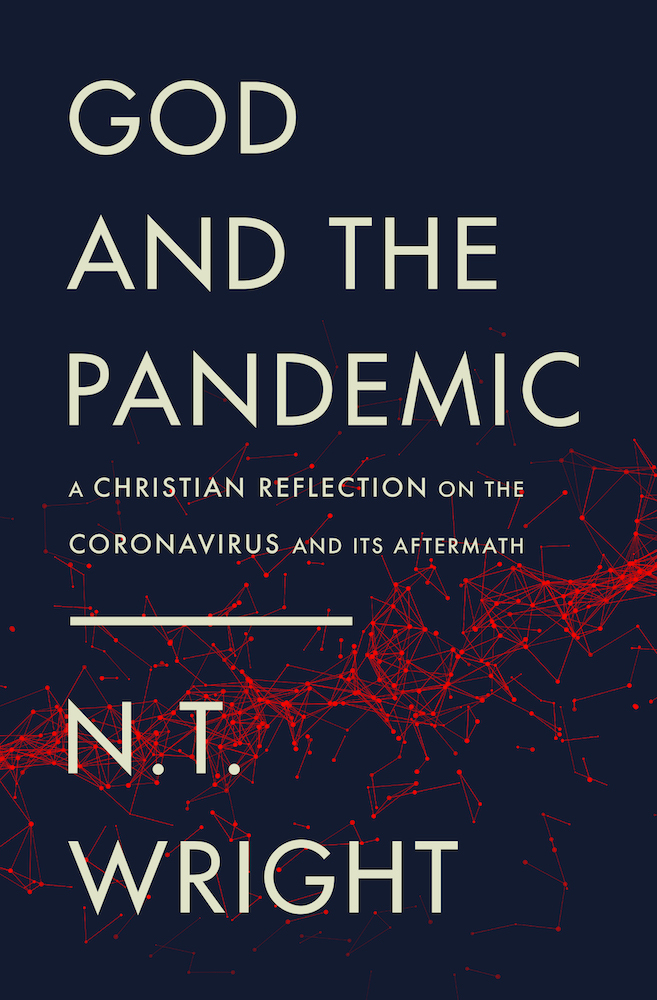Our
parish recently completed a reading and study of Bishop N.T. Wright’s short
book, God and the Pandemic, and the following is a brief distillation of the notes
I wrote for those sessions. (If you don't have the time to read the book, you can find one of many interviews with Wright here).
Wright approaches the pandemic as a problem of
theodicy, and his resource for answering this, not surprisingly, is as a
biblical scholar. He rejects any idea
that the coronavirus is sent by God as punishment or curse for sin. In times such as this, he argues, that church
has no easy answer to explain the pandemic, and the only thing we can say is already
complained in the psalms of lament (eg, Ps 22, 44, 73) of the innocent
sufferer.
The question of “why”, Wright says, is essentially the
wrong question. The innocent sufferer’s question of “why” has
already been asked by Jesus on the cross, and has been already been answered in
the revelation of the new creation that we see glimpsed in the resurrection. Since the question has already been thus
answered, Wright argues, it is fruitless and even pagan to ask why a sovereign
god would do or permit such things and how can we appease that god?
The question the church needs to answer, rather, is
what Wright calls the “spirit-driven imperative” of “what”, as in what can we,
the church, do when people are in deepest need?
A biblical-historical example of such a practical response is found in
Acts 11, when the church in Jerusalem debates how to address a coming famine
(Acts 11.27-30). Their response is to
focus on a practical, boots-on-the-ground response, by asking who can we send
and how can we help? This approach shows
“one of the great principles of the kingdom of God – the principle that God’s
kingdom, inaugurated through Jesus, is all about restoring creation the way it
was meant to be. God always wanted to
work through loyal human beings” (32).
Not surprisingly for anyone who knows his work, Wright
invokes Romans 8 and Paul’s description of creation groaning to be free from its
suffering (Rom 8.19-25). Rather than
endure this time of groaning with “Stoic resignation”, the church works with
God even as it shares in creation’s groaning, sharing the tears of Christ and
also the hard work of Christ.
Besides the work of Christ (healing, feeding, caring,
as per Matthew 25), the church’s work is also to hold the world to
account. This truth-telling could
include speaking about our misuse of creation (did we eat things outside the
food chain that caused this pandemic?) but also addressing our tendency to idolatry
(how many of the poor will be sacrificed to the economy in the recovery from
the pandemic?). What we think of as
secularism may actually be a time when certain “pagan subtexts” (wealth,
medicine, sex, even war) are elevated at the expense of a vision of all of God’s
family, regardless of wealth or race, which Wright argues is the original
vocation of the church as a model of a new and diverse creation.
In his final paragraphs, Wright expresses some
frustration with the restricted role of the church during the pandemic, as shutdown
restrictions stifle its voice and witness.
While not dissenting from the public health need for such restrictions,
Wright argues that “Public worship of the Triune God, in a public place, -
observing whatever security measures are appropriate – has always been a major
part of sending out that signal to the watching world” (69).
I was interested that in reading this book with some
parishioners, they were not deeply interested in the biblical framework of
Wright’s book. Rather, their response
was to go straight to the practical, asking what we as a church can do in our
community, which I suspect, given his reading of Acts 11, would gladden Wright’s
heart.
Recently I listened to a discussion between two pastors, Paul Vander Klay and Paul Anleitener, that included their churches’
response to Covid 19. Anleitener noted
that he didn’t think the North American church, which was still in survival
mode, had begun to think how to understand the suffering that the pandemic has
brought, though he noted wisely that this may not be a problem in the
developing world. If he is correct, then
Wright’s wise and Christocentric approach to theodicy is something that the
church needs to understand clearly.
I commend this
little book to you as a kickstarter to your own theological and pastoral responses
to Covid 19.


Thanks for bringing this book to my attention. I have found helpful in these times the collect (?) which goes like this- “ and by the tranquil operation of thy perpetual providence carry out the work of man’s salvation and let the whole world feel and see that things which were cast down are being raised up...”
ReplyDeleteThanks Alan - yes that is one of the prayers for the church from the old Anglican Book of Common Prayer. The words "tranquil operation of thy perpetual providence" require some effort to believe in this frenetic age, but are a useful counter to our increasingly crazy news cycles.
ReplyDelete